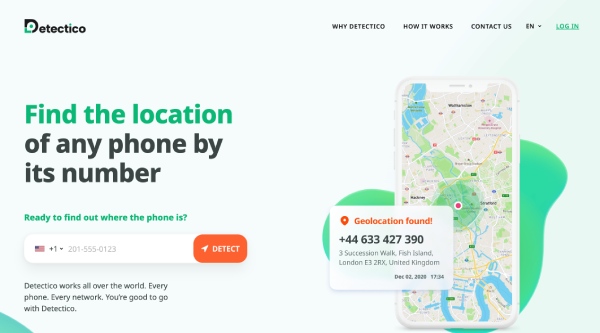To Try The Best Spy App
Latest Posts
-

How to Check My Wife’s Deleted Text Messages: Easy Solutions Revealed
While trust is the cornerstone of any relationship, there may be times when doubt clouds your judgment. Maybe you’re wondering why your wife deletes text messages, or you’re anxious to uncover the truth. Fortunately, technology today offers multiple ways to view deleted messages. Let’s dive in. How to check my wife’s deleted text messages with…
Read more about How to Check My Wife’s Deleted Text Messages: Easy Solutions Revealed
-

Detectico Review: Now You Can Locate a Phone by Number
Every smartphone that tech giants produce nowadays has a built-in A-GPS chip. But did you know that you can find the owner of a push-button phone just by its number? Yes, that’s true! In our Detectico review, we’ll uncover an app that breaks new ground with its location-tracking technology. Let’s get started. What Is Detectico?…
Read more about Detectico Review: Now You Can Locate a Phone by Number
-

How to Spy on Your Boyfriend’s Phone Without Him Knowing?
Relationships can be exceedingly fragile. The smallest act of going astray or cheating can sever a relationship built over several months or years. Opportunities for cheating on someone you love or care of are plentiful – both online and offline. Hence, it comes as no surprise that I often come across girlfriends wanting to spy on…
Read more about How to Spy on Your Boyfriend’s Phone Without Him Knowing?
-

How to Read Someone’s Facebook Messages Without Knowing Their Password?
It’s a common perception that hacking someone’s Facebook to see their messages require in-depth software knowledge and advanced coding capabilities. However, the truth is you don’t need to be a tech whiz to sneak into someone’s Facebook. In this article, we’ll try to explain some simple ways by which you’ll be able to get into…
Read more about How to Read Someone’s Facebook Messages Without Knowing Their Password?
-

How to Deploy the Best Spy Apps to Catch a Cheater for Free?
With free spy apps for a cheating spouse, you can always stay ahead of the curve to prevent yourself or your loved ones from taking a blow when catching them in questionable activities and unbecoming behaviors. So many people could avoid heartbreaks and complications in relationships if they had the means to discover what their…
Read more about How to Deploy the Best Spy Apps to Catch a Cheater for Free?
-

How to Find Out If Your Girlfriend Is Cheating and What to Do If You Confirm Your Suspicion?
Is she cheating on me? Signs in her behavior prompt you to catch a cheating girlfriend. It’s hard to be locked into the fears that your partner is cheating on you. But when such ideas are floating around in your head, it’s only natural to seek closure, even if it means using uncanny tools like…
-

Top 12 Snapchat Spy Apps That Really Work
Snapchat is one of the most popular social media apps nowadays. In just a few years it has spread across the globe and has millions of daily users. As we see, Snapchat is highly popular among children and there they can face sexting, cyberbullying, etc. Being a parent means to protect your offspring from dangers,…
-

How to Uncover Snapchat Cheating on Both Android and iPhones?
The same features that propelled Snapchat to prominence in the social media landscape are also highly instrumental in cheating activities, making it difficult to investigate cheating on Snapchat. Snapchat was the first to introduce “disappearing messages” among other innovative features. With the disappearing messages, users can quickly share photos and files of flirtatious, whimsical things…
Read more about How to Uncover Snapchat Cheating on Both Android and iPhones?
-

How to Spy on WhatsApp Without the Target Person’s Phone
Stress or illness can cause people to behave differently. Occasionally, however, these changes might indicate trouble of a different kind. For instance, a partner or spouse who’s behaving unusually might well be cheating on you. Similarly, a child who suddenly becomes distant or withdrawn might be facing various issues at school. Naturally, you’ll want to…
Read more about How to Spy on WhatsApp Without the Target Person’s Phone